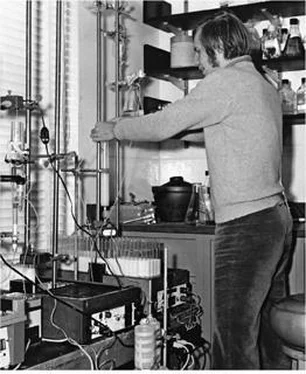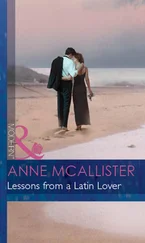James Watson - AVOID BORING PEOPLE - Lessons from a Life in Science
Здесь есть возможность читать онлайн «James Watson - AVOID BORING PEOPLE - Lessons from a Life in Science» весь текст электронной книги совершенно бесплатно (целиком полную версию без сокращений). В некоторых случаях можно слушать аудио, скачать через торрент в формате fb2 и присутствует краткое содержание. Жанр: Биографии и Мемуары. Описание произведения, (предисловие) а так же отзывы посетителей доступны на портале библиотеки ЛибКат.
- Название:AVOID BORING PEOPLE: Lessons from a Life in Science
- Автор:
- Жанр:
- Год:неизвестен
- ISBN:нет данных
- Рейтинг книги:5 / 5. Голосов: 1
-
Избранное:Добавить в избранное
- Отзывы:
-
Ваша оценка:
- 100
- 1
- 2
- 3
- 4
- 5
AVOID BORING PEOPLE: Lessons from a Life in Science: краткое содержание, описание и аннотация
Предлагаем к чтению аннотацию, описание, краткое содержание или предисловие (зависит от того, что написал сам автор книги «AVOID BORING PEOPLE: Lessons from a Life in Science»). Если вы не нашли необходимую информацию о книге — напишите в комментариях, мы постараемся отыскать её.
AVOID BORING PEOPLE: Lessons from a Life in Science — читать онлайн бесплатно полную книгу (весь текст) целиком
Ниже представлен текст книги, разбитый по страницам. Система сохранения места последней прочитанной страницы, позволяет с удобством читать онлайн бесплатно книгу «AVOID BORING PEOPLE: Lessons from a Life in Science», без необходимости каждый раз заново искать на чём Вы остановились. Поставьте закладку, и сможете в любой момент перейти на страницу, на которой закончили чтение.
Интервал:
Закладка:
My progress toward a concentration in science did not reflect any dislike of the second-year surveys in the humanities or social sciences. In fact, both these classes left lasting memories of inspired teaching. Of all my instructors, the Trinity College-trained Irish classicist David Greene would bring me closest to Hutchins's idea of great teaching. Particularly moving was Greene's Humanities II lecture on the grand inquisitor of Dostoevsky's Brothers Karamazov and the choice between freedom and the security offered by adherence to religious authority. I was also captivated by my Social Science II lectures, interspersed with discussion sessions led by the German-born refugee from Nazism Christian Mackauer. With his Continental background he was much at home pitting Max Weber's The Protestant Ethic and the
Spirit of Capitalism against R. H. Tawney's Religion and the Rise of Capitalism. It was a compelling new outlook on my father's Protestant heritage.In my first departmental science class, Botany 101, I was several years younger than the other students. The basics of plant anatomy and physiology were little more than an exercise in short-term memory. But the laboratory sessions were a horror since they demanded sketching what I saw under the microscope. My inability to draw, much less do so neatly, depressingly ensured that my final grade would be another B. Zoology 101, taught by the termite specialist Alfred Emerson, went much better: less drawing, and many trips to the Field Museum to look at its extensive collection of reptiles, birds, and mammals.
I remained all through my college years a fervent ornithologist, especially during the spring and fall migrations, when I frequently went by myself, sometimes extending the reach of public transportation by hitchhiking, to prime birding areas. The birds that fascinated me the most were the shorebirds, ranging from the tiny sandpipers to the much larger curlews. I was always on the lookout for the very rare red Wilson and northern phalaropes that Dad had seen when he was a boy. So I was tremendously thrilled when one day in early May, in a marsh on the west shore of Lake Calumet, I spotted three northern phalaropes spinning in the shallow water.
In the spring of 1945, I took the intellectually challenging physiology course taught by the clever Ralph Gerard, whose recent book, Unresting Cells, was one of our texts. The class was given in Abbott Hall, which was next to Billings Hospital and was the headquarters of the biochemistry and physiology departments. No longer did lab work depend on drawing. Instead we did actual experiments on frogs whose consciousness had been destroyed by the quick insertion of a sharpened metal rod into their brains. On other afternoons, teaching assistants did demonstrations on anesthetized dogs that had been brought down from the animal room on the top floor of Abbott. In summer months when the windows were open, the sounds of barking dogs reached the walks below, upsetting those who believed experimenting
on animals to be morally irresponsible. In contrast I, like almost everyone I knew, saw no alternative to animal experimentation if we were to advance science and medicine.The spring term was emotionally overshadowed by the death of Franklin Roosevelt on April 12 and the end of the war in Europe less than a month later. Hutchins saw V-E Day, the end of the war in Europe, as an occasion for a major statement and assembled the student body on the morning of May 8 in Rockefeller Chapel. Like many of my friends, my thoughts were of dismantling forever the German military machine that had inflicted on humanity two catastrophic world wars. Hutchins, however, majestically warned against lawless revenge that would go against the ideals for the sake of which we had entered the war. Given the day, the speech was an extraordinarily brave gesture that made me ashamed of my having espoused Henry Morganthau's proposal to reduce Germany to a nonindustrialized, pastoral country.
Academically this was my best term, the first one in which I received two As—one in physiology, the other in my first advanced divisional course, Botany 234, Physiographic Ecology. This latter course, taught by Charles Olmstead, was a walkover devoted to elucidating differences in plant life as a function of the environment. I spent that summer on a tiny island just off Door County, the long thin peninsula that separates Wisconsin's Green Bay from northern Lake Michigan. With Japanese power in full retreat and the war likely to end soon, there was no longer reason to hurry my education with summer schooling. I opted for a camp counselor position that would bring me into real northern wilderness, away from the oppressively humid heat of most Chicago summers. Though I was underqualified, being neither a strong swimmer nor an experienced boatman, the proprietor was sorely in need of staff, and I became the camp's first “nature” counselor.
Despite being so out of place, I enjoyed most days, slipping away whenever possible into the dense tangle of spruce and fir trees that surrounded the campgrounds. I could walk the perimeter of the island in less than a half hour, ever hopeful that a rare shorebird would fly by. One day this wish was royally granted when three majestic Hudsonian
curlews flew within twenty feet of my observation spot. In mid-August the radio brought news of the first atom bombs having been dropped on Japan and the immediate end of the war; it was proof of the superweapon concept, which had brought my uncle Bill to the University of Chicago and its Ryerson Physical Laboratory. Later I eagerly read the Chicago Tribune's detailed account of the University of Chicago's key contribution, the first sustained nuclear reaction produced by man; it had been accomplished in the atomic pile constructed by physicists Enrico Fermi and Leo Szilard, underneath the west football stands where I played handball.Upon returning to school for the fall 1945 quarter, I decided to risk losing my scholarship aid by taking more difficult courses. Almost all my choices were quantitative, as I simultaneously took calculus, chemistry, and physics. Balancing chemical equations was only mildly painful, and I received two As and a B. But I was much less at home with calculus, getting a B in differential calculus and then a C in the next quarter's integral calculus. So I took no further math to give more attention to my physics course. Though the instructor, Mario Iona, took a seemingly perverse pleasure in penalizing us for wrong guesses on his multiple-choice physics quizzes, I hit my stride by the spring term and pulled my grade up to an A.
All through the year I was taking Oil (Observation, Interpretation, and Integration), the most philosophically oriented of all the surveys and the last required course I needed for my degree. Again I had good fortune regarding the instructor: Joseph Schwab, whose languorous southern tone could never hide his disdain for crap answers to precise Socratic questioning in my Humanities I class. Now that I had learned to anticipate his line of interrogation, I quite often enjoyed and even looked forward to his Swift Hall classes, particularly after getting past medieval thought and on to that of the Renaissance and Francis Bacon's distinction between deductive and inductive reasoning. Even more appealing were the masterfully clear writings of the late-nineteenth-century Harvard logician C. S. Peirce. In the end, however, I was brought back to reality by my B on the final comprehensive. The message was clear that I should avoid further philosophical inquiry.
By dropping the last quarter of math, I had time to audit lectures on
physiological genetics by Sewall Wright, the university's best-known biologist. Besides being one of the world's most accomplished population geneticists and a leader in evolutionary thought, Wright also did much to advance biology toward understanding what genes do at the biochemical level. I had by then independently become focused on the gene through a reading that winter of Erwin Schrödinger's thin book What Is Life? Because Schrödinger, the inventor of quantum wave mechanics and a 1933 Nobel Prize-winning physicist, had seen the importance of writing about biology, What Is Life? was featured in the Sunday book section of the Chicago Sun-Times. The next morning I checked it out of the biology library. Schrödinger elegantly laid out how genes were the most important feature of life, since they maintained its continuity by carrying hereditary information from one generation to the next. As birds had bound me to life sciences, Schrödinger's exaltation of the gene would lead me to a life of studying genetics.At the June 1946 commencement, Robert Hutchins elegantly warned of the doom of Western civilization unless university graduates led the world toward a moral, intellectual, and spiritual revolution that contrasted with today's postwar “get all you can” ethos. I was struck by our president's tone that morning—not that of the metaphysician but that of the preacher's son—as he fervidly admonished us that only by coming to see our fellows as the children of God would we stop seeing them as rivals. He further warned us that unless we esteem ourselves as more than animals we are doomed to act like them, and the laws of the jungle will prevail. Most unexpected were his statements that we can practice Aristotelian ethics only with the support and inspiration of religious faith, that the brotherhood of men must rest on the fatherhood of God, and that cats and dogs are more attractive than most humans.
Читать дальшеИнтервал:
Закладка:
Похожие книги на «AVOID BORING PEOPLE: Lessons from a Life in Science»
Представляем Вашему вниманию похожие книги на «AVOID BORING PEOPLE: Lessons from a Life in Science» списком для выбора. Мы отобрали схожую по названию и смыслу литературу в надежде предоставить читателям больше вариантов отыскать новые, интересные, ещё непрочитанные произведения.
Обсуждение, отзывы о книге «AVOID BORING PEOPLE: Lessons from a Life in Science» и просто собственные мнения читателей. Оставьте ваши комментарии, напишите, что Вы думаете о произведении, его смысле или главных героях. Укажите что конкретно понравилось, а что нет, и почему Вы так считаете.












